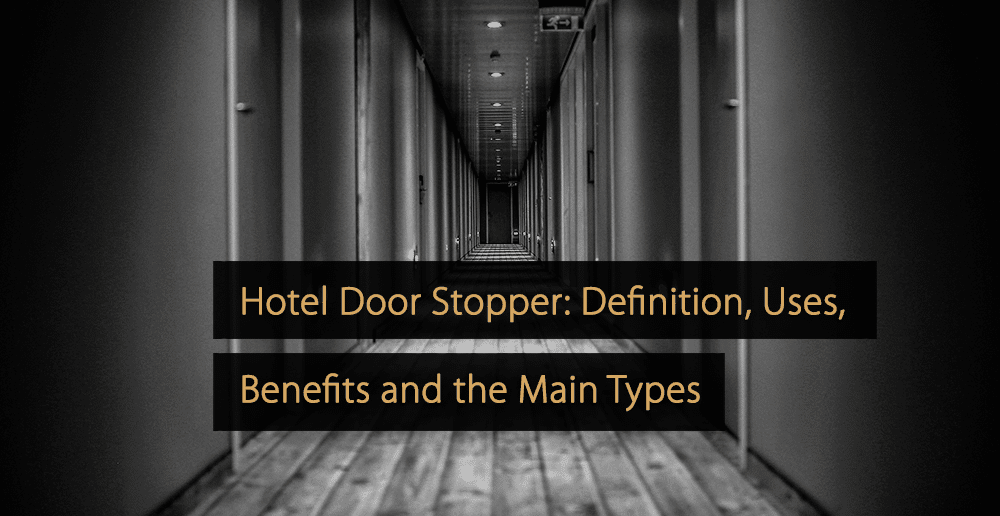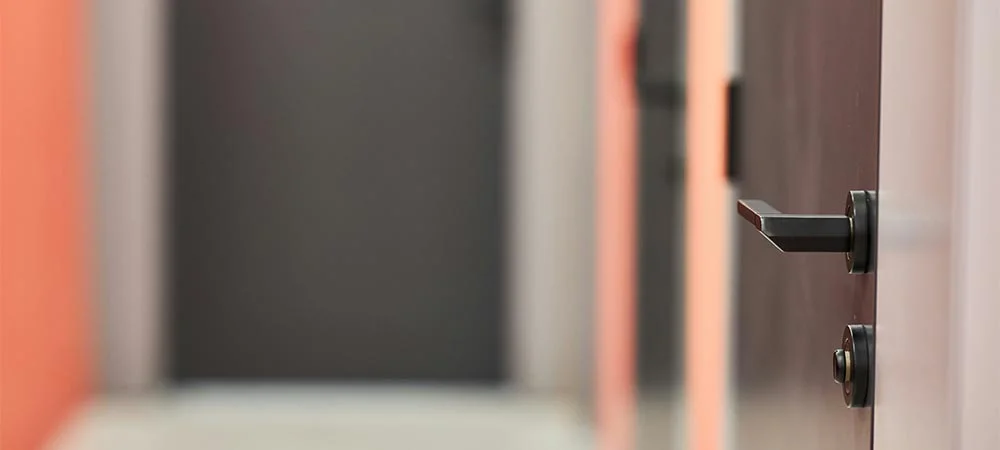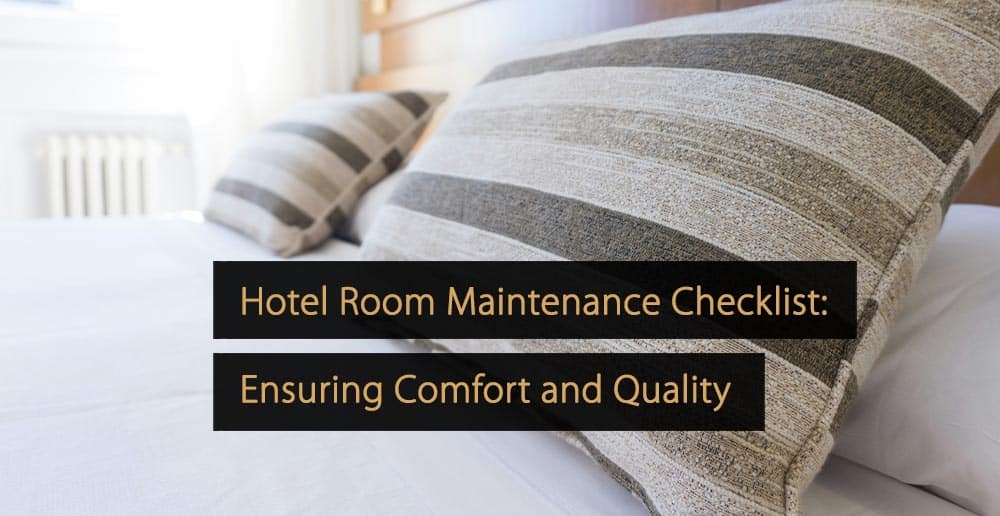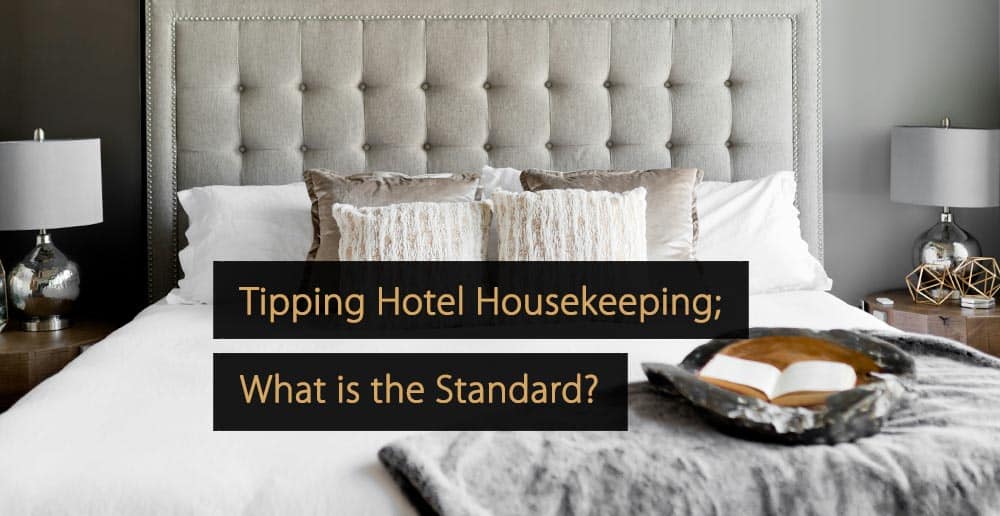A hotel door stopper is used to control the movement of a swinging door. They are often mounted on the wall, floor or the hinges of the door and limit how far the door can open.
Door stoppers are important because they protect walls and doors in hotels. The presence of a door stopper prevents the door handle, door knob or other parts of the door from impacting the wall or from hitting other objects. In this article, you can learn what hotel door stoppers are, how they are used and what their main benefits are. You will also be able to access descriptions of the main types of door stoppers used by hotels.
Table of Contents:
- What is a Hotel Door Stopper?
- Why Does a Hotel Need a Door Stopper?
- Explained: The Main Types of Hotel Door Stoppers and How They Work
- Understanding the Key Benefits of Hotel Door Stoppers
- Examining the Main Hotel Door Lock Options
- Exploring the Various Room Types in a Hotel
What is a Hotel Door Stopper?
A hotel door stopper is a small device that limits how far the door can open. This prevents damage caused by the door opening too far and impacting the wall or other objects in the room.
For those in hotel management, hotel door stoppers are an essential investment. The type of door stopper you opt for, however, will depend on the way the door opens and what it might impact against if it opens too far.
The most common options include wall-mounted door stoppers and floor-mounted door stoppers, but it is also possible for the door stopper to be connected to the hinges of the door, or wedged under the door. There are also a variety of different hotel door stopper designs, from magnetic door stoppers and alarm-fitted devices, to simple wall shields.
Investing in high-quality door stoppers can save your hotel money in the longer term and can improve the guest experience too. These simple, cost-effective devices also help to preserve the visual appeal of your hotel.
Why Does a Hotel Need a Door Stopper?
Hotel door stoppers are essential purchases for those running accommodation businesses because they protect your property. Their most basic function is to prevent a door from hitting the wall, causing damage.
A hotel door stopper should be positioned to prevent the door or the door handle from hitting the wall as it opens. Door stoppers can also prevent doors from opening wide enough to hit other objects in the room and may even prevent injury to hotel guests, such as trapped fingers or being hit by a swinging door.
The presence of a hotel door stopper in each guest room can improve the experience of staying in your hotel. For instance, it can reduce noise associated with doors slamming and can preserve the aesthetic quality of a room. Finally, some door stoppers can also be used as a means of protecting against unwanted intruders.
Explained: The Main Types of Hotel Door Stoppers and How They Work
When fitting a hotel door stopper to a room, there are a variety of options to choose from. In this section, you can explore the different options available and learn what they each have to offer.
Video: All About Doorstops
1. Wall-Mounted Hotel Door Stopper
A wall-mounted hotel door stopper is fitted to the wall of a hotel room, preventing the door from hitting the wall. When the door is fully opened, it will connect with the door stopper instead.
This type of door stopper is important to consider because it is easy to install and relatively unobtrusive. These door stoppers can easily be fitted to the main hotel room door, as well as the bathroom door.
Wall-mounted stoppers are inexpensive and a popular option for hotels with a large number of rooms.
2. Floor-Mounted Hotel Door Stopper
Floor-mounted hotel door stoppers are similar to wall-mounted stoppers, but they are mounted directly onto the floor. Common options include rubber door stops, and more heavy-duty metal door stops.
These hotel door stoppers are popular in the hotel industry because they allow you to control the swing of any door. This even includes doors that do not open up near a wall.
In addition to floor-mounted options, there are also weighted door stops, which are fully portable and can be easily removed or used for a different door, providing excellent versatility.
3. Magnetic Hotel Door Stopper
Magnetic door stoppers are usually similar in design to floor-mounted door stoppers, with added magnetic qualities. This helps to not only prevent the door from swinging too far, but also to keep the door open.
A magnetic hotel door stopper is a great option for a door that would usually close on its own. It can be especially useful for hallway doors, or doors regularly used by housekeeping and similar hotel departments.
The use of magnets can prevent doors from slamming shut, which may improve the guest experience.
Video: Magnetic Door Stopper
4. Alarm-Fitted Hotel Door Stopper
An alarm-fitted door stopper will resemble a simple wedge door stopper. However, as the name indicates, it will be fitted with an alarm, which will trigger when someone tries to open a door.
This kind of hotel door stopper is useful when you want to restrict access. Not only will the door stopper trigger an alarm to alert you to someone trying to enter, it will also offer greater resistance the more they try to enter.
Alarm-fitted door stoppers are still among the emerging hotel trends, but they are gaining popularity because they are easy to use and can be moved from one door to another with ease.
5. Door Knob Wall Shield
A door knob wall shield is a small disc, which is attached to the wall at the same height as the door knob or handle. This acts as a shield for the wall, protecting it from impact from the handle when the door is fully opened.
This kind of hotel door stopper is a very basic option, but an unobtrusive one. Door knob wall shields can be added to any wall a door might hit, and they can be easily fitted and replaced.
There are a range of options available, from plastic shields to rubber plates. The size of the shield you use will depend on the type of door handle, and you can choose from a variety of colors.
6. Baseboard Hotel Door Stopper
A baseboard hotel door stopper is very similar in concept to a wall-mounted door stopper. However, the fundamental difference is these door stoppers are attached to the baseboard or skirting board.
As a hotel owner or manager, you might want to invest in this kind of door stopper because it is more visually pleasing than a wall-mounted option. A blank wall often looks better than a wall with a clearly visible door stopper.
Depending on their elevation from the ground, baseboard stoppers can potentially make cleaning the floor around the stopper slightly more difficult, but they are subtle and visually pleasing.
7. Hinge Hotel Door Stopper
Hinge door stoppers are attached to the hinges of the door, restricting its range of motion. Most commonly, the hotel door stopper is fitted to the highest of the hinges on a door, but it could be fitted to any of the hinges.
A hinge door stopper is perfect for doors that do not open onto a wall but which might impact against a cabinet, table, or other object. They are easy to install and can protect furniture and even in-room hotel technology.
These door stoppers can also be easily detached and reattached, meaning you can move the stopper from one door to another relatively quickly. This allows for a level of versatility not offered by most wall-mounted options.
Understanding the Key Benefits of Hotel Door Stoppers
Hotel door stoppers offer a number of key benefits for hoteliers, including the following:
- Reducing Damage to Your Hotel: A hotel door stopper will prevent damage to your walls, furniture items and the door itself. This can save you money on repairs and improve the visual quality of your hotel.
- Enhancing the Guest Experience: The presence of a hotel door stopper can prevent the noise associated with a door being opened into a wall, improving the experience for other guests in your hotel.
- Improving Room Access: A hotel door stopper that can keep a door open, such as a magnetic door stopper, can improve room access, making it easier to move large objects between rooms.
- Enhancing Overall Hotel Security: Finally, some hotel door stoppers can be used to enhance the security of your hotel. For instance, an alarm-fitted stopper can prevent access to restricted areas, while magnetic door stoppers could be used to keep major doors open in emergency situations.
Examining the Main Hotel Door Lock Options
In addition to investing in a hotel door stopper for the various doors in your hotel, you also need to give careful consideration to hotel door locks. Again, there are various options available, from mechanical locks, to magnetic keycard systems, or PIN entry systems, each with their own benefits and use cases.
In the “Hotel Door Locks: The Main Lock System Types and Their Benefits” article, you will be able to find out much more about the various door entry systems in hotels and contemplate which options will suit your needs.
Exploring the Various Room Types in a Hotel
Your decision on which hotel door stopper to use may also depend on the room type in question. Hotels often include multiple room types, from single and double rooms, to bridal and honeymoon suites. The layout of different rooms can have a major bearing on which door stoppers you should consider.
In the “Hotel Room Types & Room Pricing Tips for Hoteliers” article, you can explore the most common room types in a modern hotel and access some useful tips to assist you with your pricing strategy.
Hotel door stoppers are easily overlooked, but an essential component of a great hotel. The precise door stoppers you use will depend on the specifics of the door and room layout, as well as what you are trying to achieve. However, they can prevent damage, enhance the guest experience, and improve security.
More Tips to Grow Your Business
Revfine.com is the leading knowledge platform for the hospitality and travel industry. Professionals use our insights, strategies, and actionable tips to get inspired, optimize revenue, innovate processes, and improve customer experience.Explore expert advice on management, marketing, revenue management, operations, software, and technology in our dedicated Hotel, Hospitality, and Travel & Tourism categories.
This article is written by:
Hi, I am Martijn Barten, founder of Revfine.com. With 20 years of experience in the hospitality industry, I specialize in optimizing revenue by combining revenue management with marketing strategies. I have successfully developed, implemented, and managed revenue management and marketing strategies for individual properties and multi-property portfolios.










Leave A Comment